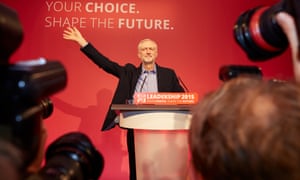Spirit of Cricket? - Laws be damned!
Once again, following Ben Stokes' obstructing-the-field dismissal in an ODI at Lord's, the spirit of cricket debate reared its ugly and pretentious head. Ugly because there is a general lack of consensus on what the spirit of cricket actually is and pretentious because of what certain players, past and present, contributed to the discussion. One player said, 'I would have withdrawn the appeal.' Another said, 'we wouldn't have appealed in the first place.'
Really? The self-righteousness is nauseating!
First, let's deal with the basics. Ben Stokes intercepted a ball with his hand that was seemingly headed for the stumps with him well out of his ground. Under the laws, this action was grounds for an appeal, which the Australians rightfully did. The only question now was intent, which was for the umpires to decide. Upon consideration of the available evidence, the umpires concluded that, under law 37, Stokes had indeed obstructed the field and gave him out.
----Also read
----
So where exactly does the spirit of cricket come into this?
The only real way to settle this tediously endless debate on the spirit of cricket is to fall back to the MCC's preamble to the laws of cricket. The essence of this preamble is thus: The captain is responsible for the conduct of his players; all players must play fair; the umpires are the sole arbiters of what is fair; you must respect the opposition, your captain, the umpires, and the game's traditional values (whatever they are in this rapidly evolving age of protective equipment, cameras, microphones and DRS).
The problem comes when someone says something like this: "That may have been within the laws of the game, but it wasn't within its spirit."
Come again? How is that possible? Is this to suggest that the spirit of cricket is independent of, or even contrary to, its laws? Never may that happen!
The spirit of cricket is guided by principles - principles of fair play and honourable conduct. It has much less to do with how a batsman is dismissed. Violations of the spirit of cricket, such as ball-tampering, time-wasting, aggressive or dishonest appealing, and dissent are not dealt with by the umpires on the field as much as they are by the match referee after the game. Although even these offences can be handled on field by the umpires under Law 42, which legislates specifically for fair or unfair play.
So the only way to invoke the spirit of cricket in Ben Stokes' dismissal is in the validity of the appeal. Since there was deemed sufficient evidence to give him out, there was clearly enough evidence for an appeal. Ergo, spirit of cricket intact.
The spirit of cricket debate invariably surfaces when there is an unusual or rare dismissal, such as obstructing the field or running out the non-striker, a.k.a. mankading. Strong opinions were voiced when Ravi Ashwin mankaded Lahiru Thirimanne but the appeal was withdrawn 'in the interests of the spirit of cricket.'
Many believe that when a batsman backs up too far, he is gaining an unfair advantage. An advantage, certainly, but why is it unfair? It would only be unfair if the fielding side could do nothing about it. There is absolutely nothing in the laws of cricket stating that a batsman cannot leave his crease before the bowler bowls. There is a law (Law 38), however, that states that if a batsman is out of his crease when the ball is in play, which it is when the bowler starts his run-up (Law 22), he can be run out. Simple. Elegant. Balanced.
It is the same with obstructing the field. There is nothing in the laws of cricket stating that a batsman cannot interfere with the fielding side. However, there is a law that states that if he does, he can be given out. Where the most harm comes to the game of cricket is when the laws are flouted or ignored in favour of this intangible and mysterious spirit. The spirit of cricket is harmed when fielding teams are forced to think twice before raising a legitimate appeal or running out a batsman who is out of his crease when the ball is live.
The spirit of cricket was damaged far more when Steven Smith's integrity and maturity were called into question by not withdrawing the appeal than by the appeal itself. Where was the respect for the opponents or the umpires there?
Cricket is an invented sport. Like all sports, cricket has rules, or in cricket's case, Laws. If there is a law whose existence or application is widely seen to be against the interests, or spirit, of the game, then change or abolish that law. But we all know that is not going to happen. The laws of cricket have been developed and refined over many decades across three centuries - and are very clear.
The spirit of cricket should not and cannot exist separately from the laws of cricket. It is contained within its laws. Anyone who feels differently should either start a rigorous campaign to get the laws changed, or rethink what they consider to be in the game's spirit. And it most certainly should not be considered against the spirit of the game if the laws are correctly applied.
Knowing, accepting and playing within these Laws IS the Spirit of Cricket.
So where exactly does the spirit of cricket come into this?
The only real way to settle this tediously endless debate on the spirit of cricket is to fall back to the MCC's preamble to the laws of cricket. The essence of this preamble is thus: The captain is responsible for the conduct of his players; all players must play fair; the umpires are the sole arbiters of what is fair; you must respect the opposition, your captain, the umpires, and the game's traditional values (whatever they are in this rapidly evolving age of protective equipment, cameras, microphones and DRS).
The problem comes when someone says something like this: "That may have been within the laws of the game, but it wasn't within its spirit."
Come again? How is that possible? Is this to suggest that the spirit of cricket is independent of, or even contrary to, its laws? Never may that happen!
The spirit of cricket is guided by principles - principles of fair play and honourable conduct. It has much less to do with how a batsman is dismissed. Violations of the spirit of cricket, such as ball-tampering, time-wasting, aggressive or dishonest appealing, and dissent are not dealt with by the umpires on the field as much as they are by the match referee after the game. Although even these offences can be handled on field by the umpires under Law 42, which legislates specifically for fair or unfair play.
So the only way to invoke the spirit of cricket in Ben Stokes' dismissal is in the validity of the appeal. Since there was deemed sufficient evidence to give him out, there was clearly enough evidence for an appeal. Ergo, spirit of cricket intact.
The spirit of cricket debate invariably surfaces when there is an unusual or rare dismissal, such as obstructing the field or running out the non-striker, a.k.a. mankading. Strong opinions were voiced when Ravi Ashwin mankaded Lahiru Thirimanne but the appeal was withdrawn 'in the interests of the spirit of cricket.'
Many believe that when a batsman backs up too far, he is gaining an unfair advantage. An advantage, certainly, but why is it unfair? It would only be unfair if the fielding side could do nothing about it. There is absolutely nothing in the laws of cricket stating that a batsman cannot leave his crease before the bowler bowls. There is a law (Law 38), however, that states that if a batsman is out of his crease when the ball is in play, which it is when the bowler starts his run-up (Law 22), he can be run out. Simple. Elegant. Balanced.
It is the same with obstructing the field. There is nothing in the laws of cricket stating that a batsman cannot interfere with the fielding side. However, there is a law that states that if he does, he can be given out. Where the most harm comes to the game of cricket is when the laws are flouted or ignored in favour of this intangible and mysterious spirit. The spirit of cricket is harmed when fielding teams are forced to think twice before raising a legitimate appeal or running out a batsman who is out of his crease when the ball is live.
The spirit of cricket was damaged far more when Steven Smith's integrity and maturity were called into question by not withdrawing the appeal than by the appeal itself. Where was the respect for the opponents or the umpires there?
Cricket is an invented sport. Like all sports, cricket has rules, or in cricket's case, Laws. If there is a law whose existence or application is widely seen to be against the interests, or spirit, of the game, then change or abolish that law. But we all know that is not going to happen. The laws of cricket have been developed and refined over many decades across three centuries - and are very clear.
The spirit of cricket should not and cannot exist separately from the laws of cricket. It is contained within its laws. Anyone who feels differently should either start a rigorous campaign to get the laws changed, or rethink what they consider to be in the game's spirit. And it most certainly should not be considered against the spirit of the game if the laws are correctly applied.
Knowing, accepting and playing within these Laws IS the Spirit of Cricket.

